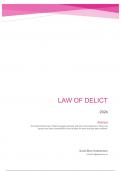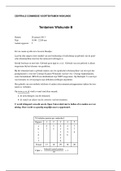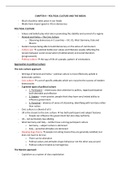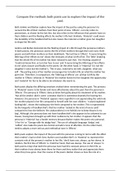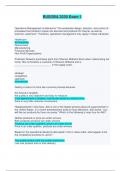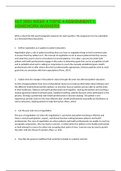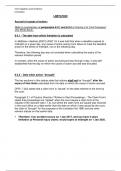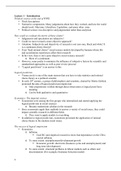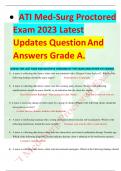Summary
Summary Law of Delict 301 Summaries
Law of Delict 301 summary of the textbook The Law of Delict in South Africa by Loubser & Midgley (eds.) third edition. Summaries of the following topics: introduction to delict, harm, conduct, causation, fault, wrongfulness, defences (private defence, necessity, consent), delict in the business en...
[Show more]
